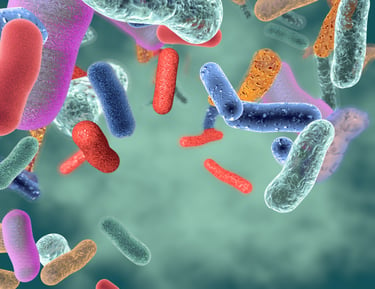eStoreRx™
Online Supplement Dispensary
eStoreRx™ is an easy direct-to-patient ordering & fulfilment program for lifelong wellness.
For over 40 years, Biotics Research Corporation has revolutionized the nutritional supplement industry by utilizing “The Best of Science and Nature”. Combining nature’s principles with scientific ingenuity, our products magnify the nutritional
eStoreRx™ is an easy direct-to-patient ordering & fulfilment program for lifelong wellness.
Biotics Research is proud to expand our commitment to education with the Wellness Unfiltered Pro Podcast. Each episode delves into key health topics and the clinical applications of our premier products. Through candid, insightful conversations, our team offers practical guidance to keep you informed and empowered as a healthcare professional.
February 12 2026
The results of a randomized, double-blind, placebo-controlled trial describing the effects of taurine supplementation on blood pressure and vascular f...
 It is now understood that the disturbance of the microbiota-host relationship is associated with numerous chronic inflammatory diseases, including inflammatory bowel disease and metabolic syndrome. It has been hypothesized that detergent-like molecules that are a ubiquitous component of processed foods, and that can increase bacterial translocation across epithelia, may
It is now understood that the disturbance of the microbiota-host relationship is associated with numerous chronic inflammatory diseases, including inflammatory bowel disease and metabolic syndrome. It has been hypothesized that detergent-like molecules that are a ubiquitous component of processed foods, and that can increase bacterial translocation across epithelia, may
be promoting the increase in inflammatory bowel disease observed since the mid-twentieth century. Researchers reported that in mice, relatively low concentrations of two commonly used emulsifiers (carboxymethylcellulose and polysorbate-80), induced low grade inflammation and obesity/metabolic syndrome in wild-type hosts and promoted robust colitis in mice predisposed to this disorder. This chemically induced metabolic syndrome was associated with microbiota encroachment, altered species composition and increased pro-inflammatory potential. Researchers’ results support the emerging concept that perturbed host-microbiota interaction resulting in low-grade inflammation can promote adiposity and its associated metabolic effects, and they suggest that the broad use of chemical emulsifying agents (surfactants) might be contributing to an increased societal incidence of obesity/metabolic syndrome and other chronic inflammatory diseases.
Chassaing B, et al. Dietary emulsifiers impact the mouse gut microbiota promoting colitis and metabolic syndrome. Nature. Vol 519. 5 March 2015.
Submit this form and you'll receive our latest news and updates.
*These statements have not been evaluated by the Food and Drug Administration. This product has not intended to diagnose, treat, cure, or prevent any disease.
© 2025 Biotics Research Corporation - All Rights Reserved
Submit your comment